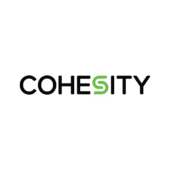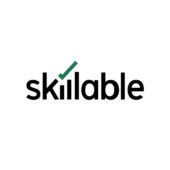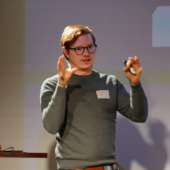ForwardTech: The Year Ahead Agenda
Join us at ForwardTech 2024 to stay ahead of the future of technology and innovation. Attend sessions on GenAI, cloud computing, data protection, and IT leadership to prepare for 2025. Gain actionable insights, expert knowledge, and build key connections to strengthen your IT strategy and position your organization for long-term success.
All times listed on the agenda are Eastern Standard Time.
Wednesday, December 4
As we witness rapid advancements across various fields, it’s crucial to consider their interconnected impacts. The convergence of AI, biotechnology, and climate action, for instance, could lead to solutions we haven’t yet imagined. However, it also raises important questions about equity, ethics, and the very nature of human progress. In this presentation, Jack Uldrich will present his thoughts about how to achieve a future that balances innovation with human values and environmental sustainability.
As we approach 2025, organizations are grappling with escalating cyber threats and growing regulatory pressures. These challenges are expected to intensify, with mandatory requirements likely pushing the adoption of Zero Trust models like MFA, driven by evolving rules and insurance demands. In this session, we’ll explore how these trends might shape the enterprise’s security strategies.
Key topics we’ll cover include:
• Mandatory regulations and cybersecurity: Understanding how evolving regulatory requirements will drive the adoption of Zero Trust models, like MFA, to strengthen organizational cybersecurity.
• Advances in multi-vendor collaboration: Examining the importance of enhanced integrations and innovations, including Extended Detection and Response (XDR), for bolstering organizational security.
• The role of automation and AI: Discovering how automation will be essential as a foundation for AI, supporting risk management, visibility, data prioritization, and proactive strategies in a data-centric environment.
Join us as we envision the key trends poised to shape the future of cybersecurity.
In an era defined by rapid technological change, transformation is not only challenging but especially daunting for organizations that thrived long before the digital age. For these storied companies, success hinges on navigating a delicate balance between preserving heritage and adopting disruptive technologies. In this panel, we’ll explore the unique challenges faced by organizations born before the dawn of digital, from technology modernization to the evolution of long-standing processes, and reveal strategies to rewire for the future without compromising culture and identity.
AI is permeating every part of the workplace but we still don’t have enough people trained in the right skills, to the right levels, to fully implement AI in an aligned and responsible way. It’s a challenge we’re hearing across boardrooms with over 62% of organizations stating that they don’t have the expertise they need to unlock AI’s full potential. We need to figure this out, fast, with the IDC predicting that by 2025, 90% of organizations will feel the impact of their technical skills shortages through delayed product releases, reduced customer satisfaction and lost revenue.
In this talk, Skillable’s Co-Founder & Executive Chairman, Corey Hynes, will set out an action plan that you can bring to your organization to get on-top of (and, eventually ahead) of your AI skills.
- Understanding what organizations mean when they say “We need to learn AI”
- Understanding the different training methods for role in the AI lifecycle.
- Rethinking how you assess and validate AI and other technical skills.
- Building a comprehensive skilling program for AI.
An overview of thinking about Large Language Models as “the world’s smartest intern” and how business leaders can think about how to apply this remarkable and portable intelligence in their organization.
Business value engineering (BVE) is a data- and insights-driven methodology and set of tools for automation and process improvement planning and continuous improvement. The overall objective of BVE is to drive consistent success in process improvement by switching from a technology-first mindset to an outcomes-first approach.
In this session, Maureen will cover how central to BVE is the ability to:
• Accurately identify how tasks, business processes, and customer value streams are inefficient.
• Use statistical analysis and modeling to project financial and business benefits that could be achieved with the improvement.
• Accurately map the technologies needed to achieve the improvement.
• Continuously measure the performance before, during, and after improvements are made.
• Continuously improve by operating proactively via monitoring while rapidly identifying new opportunities for greater efficiency.
How important is business agility in an era shaped by geopolitical shifts and rapid technological advances? This session will delve into how agility enables organizations to respond swiftly to market changes, with enterprise data as a central driver of this capability. The discussion will address common challenges, such as data fragmentation across numerous systems—legacy and modern, on-premises and cloud-based—that hinder a unified view of enterprise data. Gain insights into overcoming these complexities, from accessing data across diverse systems and formats to achieving an integrated approach that supports mergers and acquisitions, analytics, and AI initiatives. Discover the strategies for modernizing and consolidating data landscapes, empowering your organization to stay competitive in today’s dynamic environment to set you up for a future-ready business tomorrow.
It was projected that the global market for workflow automation would reach $18.45 billion in 2024, ushering in an era of seamless efficiency and innovation. Automation now handles mundane tasks, enabling instant responses and flawless logistics, while freeing human creativity. Industry giants are leveraging predictive analytics and RPA to transform operational excellence.
This transformation is not just a concept but a tangible reality, redefining business efficiency. AI, while popularly associated with applications like ChatGPT, also plays a crucial role in process orchestration. This overview explores Camunda’s perspective of AI automation in action.
AI promises to fundamentally transform how we work. While many companies are just starting to use AI for tasks like finding and summarizing information, they haven’t yet adopted AI to automate repetitive tasks, manage departmental processes, and handle communications. That’s because making AI work across all company data, customized for every employee, and seamlessly integrated into their workflows is hard. In this talk, we introduce Glean as the Work AI platform for all. Glean connects and understands all your enterprise data to provide trusted answers and automate work based on company knowledge.
The AbbVie Intelligence Platform – a full suite of AI tools designed to boost productivity, improve decision-making and grow business – was introduced to the entire enterprise. Developed and executed in a first-of-its-kind way for AbbVie’s organizational structure, The Platform demonstrates the power of federated teams collaborating to deliver transformative tools that enable employees to better meet business objectives at technology company level pace, agility and compliance.

















